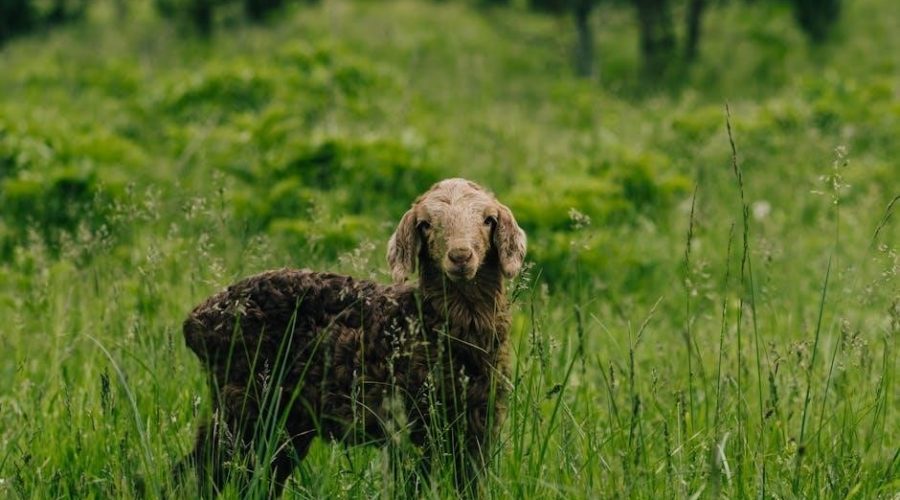Chapter 1 of Animal Farm introduces the setting of Manor Farm, where animals gather in the barn to hear Old Major’s vision of a future without human oppression. Mr. Jones’s drunken negligence sets the stage for rebellion, as the animals begin to unite under a shared hope for freedom and equality.
Overview of the Chapter
In Chapter 1 of Animal Farm, Old Major, a wise boar, calls a meeting in the barn to share his vision of a future where animals can live free from human oppression. He explains that their suffering stems from human exploitation and urges unity among the animals; Meanwhile, Mr. Jones’s drunken negligence highlights the poor condition of Manor Farm, setting the stage for rebellion. The chapter introduces key characters and establishes the central themes of freedom, rebellion, and collective action, sparking hope and determination among the animals.
Setting of the Story
The story unfolds on Manor Farm, a rural property owned by the neglectful and drunken Mr. Jones. The farm, once prosperous, has fallen into disrepair due to Jones’s irresponsibility. The barn serves as a central gathering place, symbolizing unity and collective action among the animals. The setting establishes a backdrop of oppression and decay, highlighting the animals’ miserable living conditions and their growing desire for change. The farm’s state reflects the broader themes of neglect and rebellion, setting the stage for the events that will unfold.
Key Characters Introduced
In Chapter 1, Old Major, a wise and aged boar, is introduced as the leader who inspires the animals with his vision of a better future. The pigs, particularly Snowball and Napoleon, emerge as ambitious and intelligent figures. Boxer, a strong and loyal horse, and Benjamin, a skeptical donkey, are also notable. Additionally, the sheep, cows, and other farm animals are introduced, showcasing their diverse personalities and roles in the story. These characters lay the foundation for the events and themes that will develop throughout the novel.
Old Major’s Speech
Old Major’s speech in Chapter 1 of Animal Farm presents a vision of a utopian future where animals live freely without human oppression, emphasizing unity and equality.
The Vision of a Better Future
Old Major shares his vision of a future where animals live freely, without human exploitation. He envisions a world where animals collectively work together, free from oppression, to create a utopia. This vision emphasizes unity, equality, and the abolition of systems that exploit animals for human gain. Old Major’s speech inspires hope, urging the animals to strive for a future where they can thrive without the tyranny of humans, fostering a sense of purpose and collective ambition among the gathered animals.
The Cause of Animal Suffering
Old Major identifies humans as the root cause of the animals’ suffering. He explains that humans exploit animals for labor and resources, providing little in return. This exploitation leads to the animals’ poverty, hunger, and mistreatment. Old Major emphasizes that as long as humans control the farm, the animals will remain oppressed. He argues that the animals’ hard work enriches humans, while the animals themselves live in poor conditions, highlighting the unjust system that perpetuates their misery and lack of freedom.
Call to Action for the Animals
Old Major urges the animals to rebel against their oppressors, advocating for unity and collective action. He emphasizes the need for a rebellion led by the animals themselves, free from human influence. Old Major’s speech inspires the animals to strive for a utopian future where they can live freely and equally, working together to overthrow their oppressors and establish a self-governed society. His call to action ignites hope and determination among the animals, setting the stage for their eventual uprising.
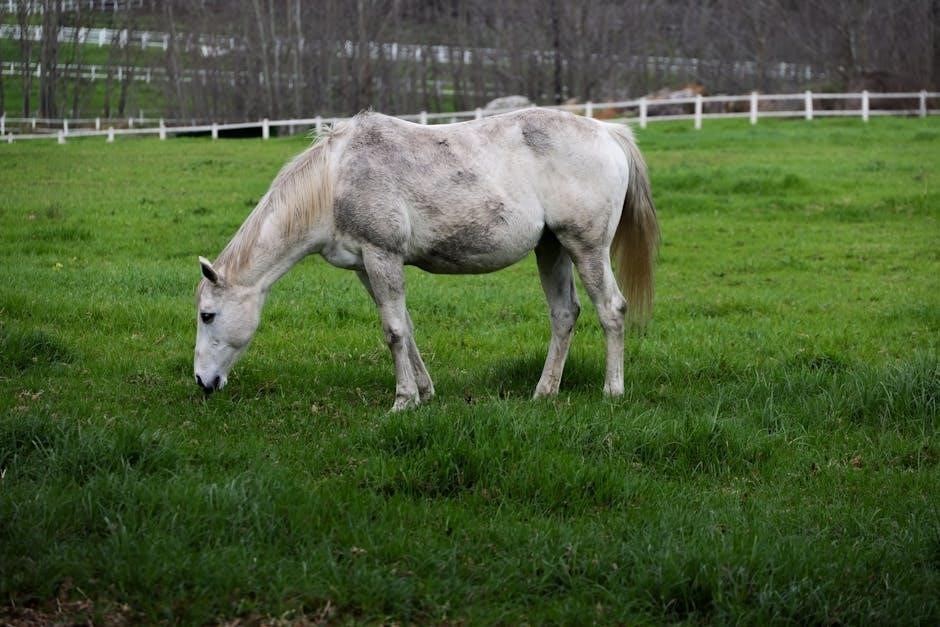
The Meeting in the Barn
Old Major calls a meeting in the barn, gathering all animals to share his vision of rebellion against human oppression, inspiring hope and unity among them.
The Gathering of Animals
All the animals of Manor Farm assemble in the barn at Old Major’s request, eager to hear his message. The pigs, led by Snowball and Napoleon, position themselves at the front, while other animals like Boxer, Clover, and Benjamin find their places. The atmosphere is tense with anticipation as the animals unite, sensing the significance of the moment. This gathering marks the beginning of their collective action against oppression, setting the stage for Old Major’s influential speech and the spark of rebellion.
The Role of the Pigs
The pigs emerge as natural leaders during the gathering, showcasing their intelligence and ambition. Snowball and Napoleon, the most prominent pigs, position themselves at the front, signaling their authority. They take charge of organizing the meeting, demonstrating their ability to guide the others. Their placement and behavior highlight their early dominance and set the foundation for their future roles in the rebellion. The pigs’ proactive involvement underscores their pivotal role in shaping the animals’ collective action.
The Reaction of Other Animals
The other animals react with a mix of curiosity and skepticism. Boxer, the horse, shows enthusiasm, while Benjamin, the donkey, remains doubtful. The cows and sheep express interest but lack understanding. The animals’ varied responses reflect their differing personalities and levels of awareness. This diversity in reaction highlights the challenges of achieving unity among the animals, as some are inspired by Old Major’s vision, while others remain uncertain about the feasibility of change.
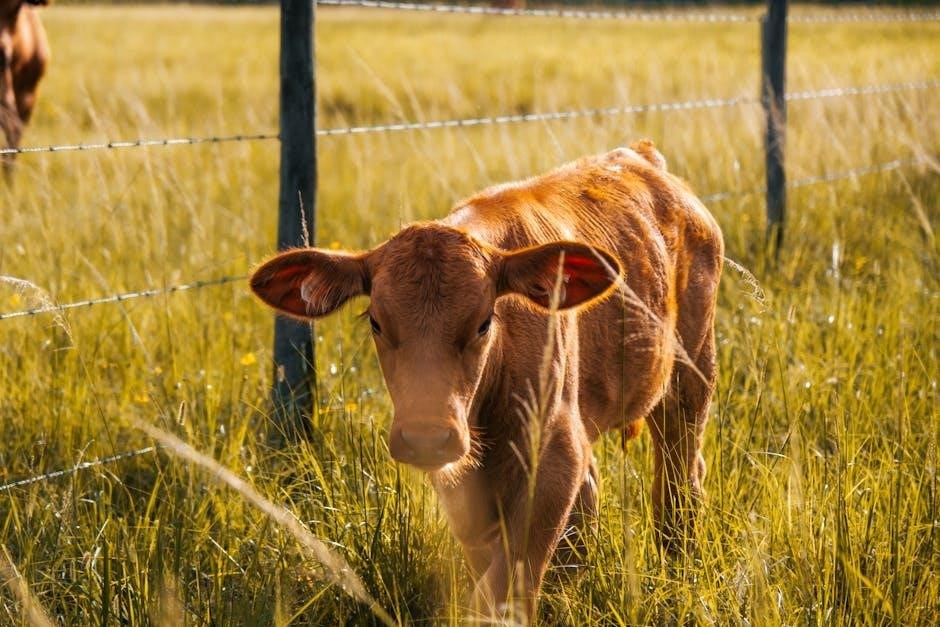
The Condition of Manor Farm
Manor Farm is in a state of neglect due to Mr. Jones’s drunkenness and poor management. The farm buildings are in disrepair, and the animals suffer from poor living conditions.
Mr. Jones’s Negligence
Mr. Jones’s drunkenness and careless management of Manor Farm lead to neglect of the animals and farm buildings. His failure to secure the farm properly results in disrepair and poor living conditions for the animals. This negligence symbolizes the broader oppression of the animals by their human overlords, highlighting the need for change. Old Major’s speech later addresses this suffering, inspiring the animals to seek a better future. Jones’s neglect ultimately fuels the animals’ desire for rebellion and self-governance.
The State of the Farm Buildings
The farm buildings on Manor Farm reflect Mr. Jones’s neglect and poor management. The barn, where the animals gather, is in a state of disrepair, symbolizing the broader decay of the farm. The structures are outdated and poorly maintained, mirroring the oppressive conditions under which the animals live. This neglect contributes to the animals’ growing dissatisfaction and serves as a visual reminder of their need for change and improvement. The dilapidated buildings underscore the farm’s overall mismanagement by Mr. Jones.
The Living Conditions of the Animals
The animals on Manor Farm endure harsh living conditions due to Mr. Jones’s neglect. Overcrowding and poor maintenance of their shelters create unsanitary and uncomfortable environments. Many animals suffer from malnutrition and inadequate care, reflecting the broader oppression they face. The barn, where they gather, is dimly lit and cramped, emphasizing their collective hardship. These dire conditions fuel their dissatisfaction and longing for a better life, as highlighted by Old Major’s speech. The animals’ poor living situation underscores the urgent need for change and rebellion against their oppressive circumstances.
The Animals’ Reaction to Old Major’s Speech
The animals are deeply moved by Old Major’s vision, feeling inspired and united. His words ignite a collective determination to seek a better future and freedom from oppression.
Hope and Inspiration
Old Major’s speech ignites a profound sense of hope among the animals, as they envision a future free from human oppression. His words paint a utopian picture of a world where animals can thrive independently, sparking unity and determination. The animals feel inspired by the possibility of a better life, and their collective spirit is lifted by the promise of freedom and self-governance. This newfound hope binds them together, creating a shared purpose that motivates them to strive for change.
Fear and Doubt
While Old Major’s speech stirs hope, it also raises fears and doubts among the animals. They worry about the challenges of self-governance and the uncertain future without human control. Some question their ability to manage the farm independently, fearing chaos and instability. The older animals, in particular, express skepticism, recalling past failed attempts at rebellion. These fears highlight the animals’ naivety and lack of experience in leadership, foreshadowing potential conflicts and power struggles that may arise in their pursuit of freedom.
Determination to Act
Old Major’s speech ignites a collective determination among the animals to act against their oppression. United by their shared vision of a better future, they vow to work together to overcome human tyranny. The pigs, with their intelligence and leadership, take charge of organizing the rebellion, while the other animals express their readiness to support the cause. This newfound resolve marks the beginning of their journey toward self-governance and freedom, setting the stage for the transformative events that will unfold on Manor Farm.
The Significance of the Barn
The barn serves as the central gathering place for the animals, symbolizing unity and collective action. It is where Old Major shares his vision and the animals unite to plan their rebellion, making it a pivotal location for decision-making and the birth of their shared goals.
As a Symbol of Unity
The barn embodies the unity of the animals, as it is where they gather collectively to discuss their shared grievances and aspirations. Old Major’s speech within its walls ignites a sense of common purpose, transcending individual differences. The barn becomes a space where all animals, regardless of species or status, unite under a shared vision of rebellion against their oppressor, Mr. Jones. This unity is vital for the impending revolution and serves as the foundation for their collective strength.
As a Place of Decision-Making
The barn serves as the central location where the animals gather to discuss and decide their future. It is here that Old Major delivers his influential speech, inspiring the animals to consider rebellion. The barn becomes a space for strategic planning, as the pigs, led by Snowball and Napoleon, begin to organize and outline the steps toward revolution. This setting underscores the transition from mere discussion to actionable plans, marking the barn as the birthplace of the animals’ collective decision to seek freedom and self-governance.
As a Representation of the Animals’ Collective Strength
The barn symbolizes the animals’ collective strength and unity. It is here that Old Major’s speech ignites a shared vision of rebellion, uniting the animals under a common goal. The gathering in the barn demonstrates their ability to come together, transcending individual differences, and harnessing their collective power to challenge oppression. This space becomes a symbol of their solidarity, showing that when united, the animals can achieve what they cannot alone, embodying the heart of their emerging movement toward freedom and self-determination.
Themes Introduced in Chapter 1
Oppression, rebellion, and unity emerge as central themes. Old Major’s speech highlights the exploitation of animals by humans, inspiring a desire for freedom and collective action, setting the stage for revolution.
Oppression and Freedom
Old Major’s speech in Chapter 1 highlights the oppression of animals by humans, emphasizing how their labor benefits only Mr. Jones. He envisions a future where animals are free from exploitation, working for their own welfare. The pigs and other animals realize their collective strength and the possibility of rebellion against tyranny. This theme sets the foundation for the struggle between oppression and the pursuit of freedom, inspiring hope and unity among the animals for a better future without human domination.
Rebellion Against Tyranny
Old Major’s impassioned speech in Chapter 1 ignites the spark of rebellion among the animals. He condemns the tyranny of Mr. Jones and humans, urging the animals to rise against their oppressors. The pigs, particularly Snowball and Napoleon, emerge as leaders, organizing the meeting and instilling a sense of purpose. The animals’ collective resolve to overthrow their exploitative master marks the beginning of their struggle for self-governance and freedom, setting the stage for the eventual rebellion that will transform Manor Farm into Animal Farm.
The Importance of Unity
Unity emerges as a vital theme in Chapter 1, as Old Major’s speech emphasizes the need for collective action to overthrow oppression. The animals’ gathering in the barn symbolizes their first step toward unity, with all species present and engaged. Old Major stresses that division among them only benefits their oppressors. The pigs, as leaders, begin organizing the meeting, showcasing the power of collaboration. This unity sets the foundation for their rebellion, highlighting that strength lies in solidarity and shared purpose, essential for their fight against tyranny and pursuit of a better future.
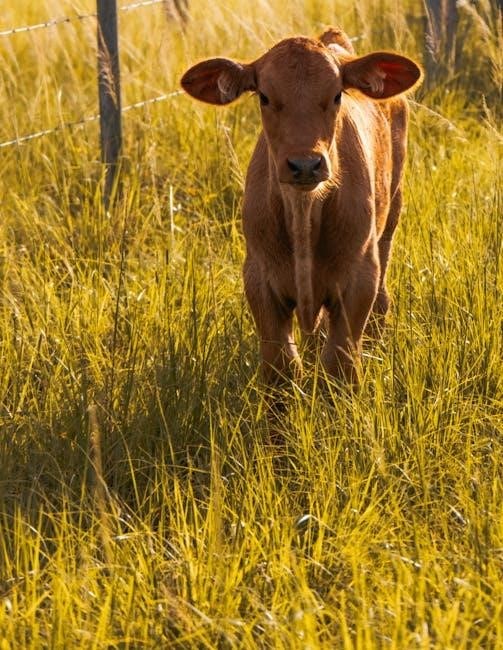
Symbolism in Chapter 1
Old Major as a Symbol of Leadership
Old Major, a wise and charismatic boar, symbolizes leadership by uniting the animals with his powerful speech, inspiring rebellion against oppression and envisioning a better future.
Old Major, a wise and charismatic boar, emerges as a symbol of leadership in Chapter 1. His powerful speech in the barn unites the animals, inspiring them to rebel against human oppression. With his vision of a utopian future, he embodies the ideals of freedom and equality, stirring hope and determination among the animals. His leadership is further emphasized by his ability to articulate the collective suffering and ignite a sense of purpose, making him a central figure in the story’s opening chapter.
The Barn as a Symbol of Collective Action
The barn in Chapter 1 serves as a powerful symbol of collective action, uniting the animals under a shared purpose. It is here that Old Major delivers his inspiring speech, igniting the spark of rebellion. The barn represents a space where the animals gather to discuss their oppression and envision a better future. Its significance lies in its role as a catalyst for unity, fostering collaboration and shared determination among the animals, which becomes a cornerstone of their struggle for freedom and equality.
The Pigs as Emerging Leaders
In Chapter 1, the pigs position themselves as natural leaders, demonstrating intelligence and initiative. Old Major’s speech highlights their role in guiding the rebellion, while other pigs like Snowball and Napoleon show early signs of ambition. Their ability to organize and articulate ideas places them at the forefront of the movement, establishing a hierarchy that will shape the farm’s future. The pigs’ leadership begins to take form, setting the stage for their pivotal roles in the coming events of the story.
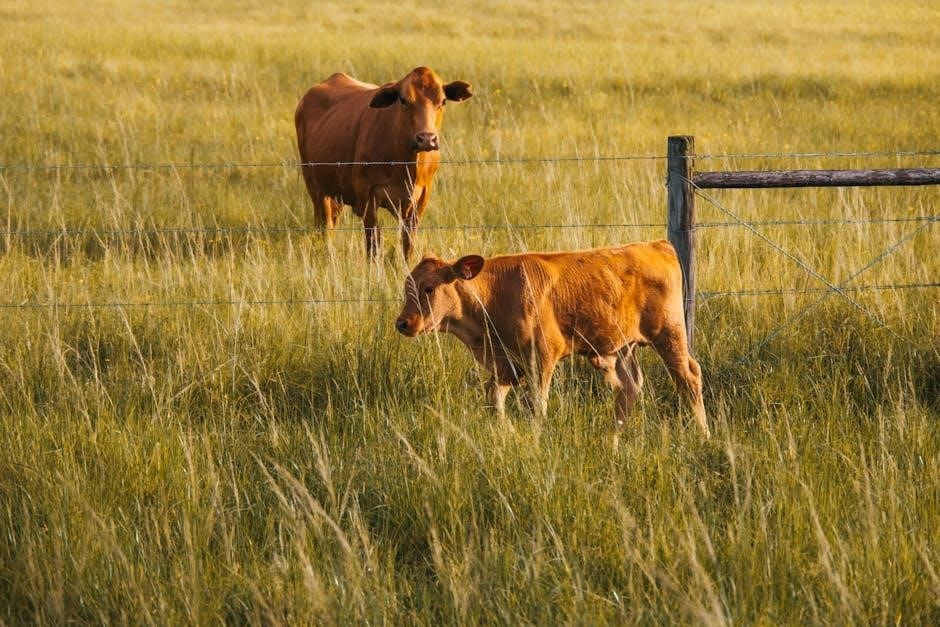
Narrative Style and Tone
Orwell’s narrative in Chapter 1 is marked by simplicity and clarity, creating an urgent yet hopeful tone. Satirical elements subtly critique authority and power imbalances, engaging readers deeply.
Orwell’s Use of Simple Language
Orwell employs straightforward, accessible language in Chapter 1, mirroring the simplicity of the animals’ perspectives. This clarity enhances the story’s universality, making complex themes like oppression and rebellion relatable. The direct narrative style allows readers to connect with the characters’ emotions and motivations, fostering empathy and understanding. Orwell’s choice of language ensures that the profound message resonates with a broad audience, regardless of their literary background. The simplicity also underscores the satirical elements, emphasizing the stark contrast between ideals and reality.
The Tone of Urgency and Hope
Orwell crafts a tone of urgency and hope in Chapter 1, driven by Old Major’s impassioned speech. The aging boar’s words ignite a sense of immediacy, as he warns of his impending death and the need for rebellion. Yet, his vision of a future free from human tyranny instills hope among the animals. This duality of urgency and optimism sets the emotional foundation for the story, inspiring the animals to consider a better future while acknowledging the challenges ahead. The tone motivates action and fosters a sense of collective purpose.
Orwell introduces satirical elements in Chapter 1 by portraying the animals’ naive yet hopeful reactions to Old Major’s speech. The pigs, positioned as natural leaders, subtly display ambitions that foreshadow future power struggles. The contrast between the animals’ idealistic vision of rebellion and the reality of their circumstances mirrors human societal flaws. Mr. Jones’s drunken negligence symbolizes the corruption of authority, while the pigs’ early signs of leadership hint at the satire’s focus on power dynamics and corruption, setting the stage for the novella’s critique of human nature and political systems.
Key Events of Chapter 1
Mr. Jones’s drunkenness leads to his neglect of the farm, Old Major gathers the animals to share his vision of rebellion, and his sudden death shocks the assembly.
Mr. Jones’s Drunkenness
Mr. Jones, the owner of Manor Farm, is depicted as a negligent and irresponsible figure due to his excessive drinking. His drunkenness leads to the farm’s disarray and the animals’ suffering. On the evening of the gathering, Jones staggering intoxicated fails to secure the farm buildings, showcasing his lack of care. This negligence not only highlights the poor condition of the farm but also sets the stage for the animals’ awareness of their oppression, inspiring Old Major to address them about the need for rebellion and a better future.
The Animals’ Gathering in the Barn
The animals of Manor Farm assemble in the barn at Old Major’s summons, marking a pivotal moment in the story. This gathering symbolizes unity and collective action among the animals. The barn, traditionally a place of work and toil, transforms into a space for discussion and planning, highlighting the animals’ growing awareness of their shared oppression. The meeting sets the stage for Old Major’s influential speech, which ignites the desire for rebellion and a vision of a future without human tyranny, thus laying the foundation for the events to come.
Old Major’s Death and Its Implications
Old Major’s death shortly after his inspiring speech serves as a catalyst for the animals’ rebellion. His passing unites the animals, reinforcing their determination to pursue the vision he outlined. The pigs, particularly Snowball and Napoleon, step forward as leaders, beginning to organize and plan the uprising. Old Major’s death symbolizes the end of an era of passive acceptance and marks the beginning of a new phase of activism and collective action among the animals, setting the stage for the events that will unfold on Manor Farm.
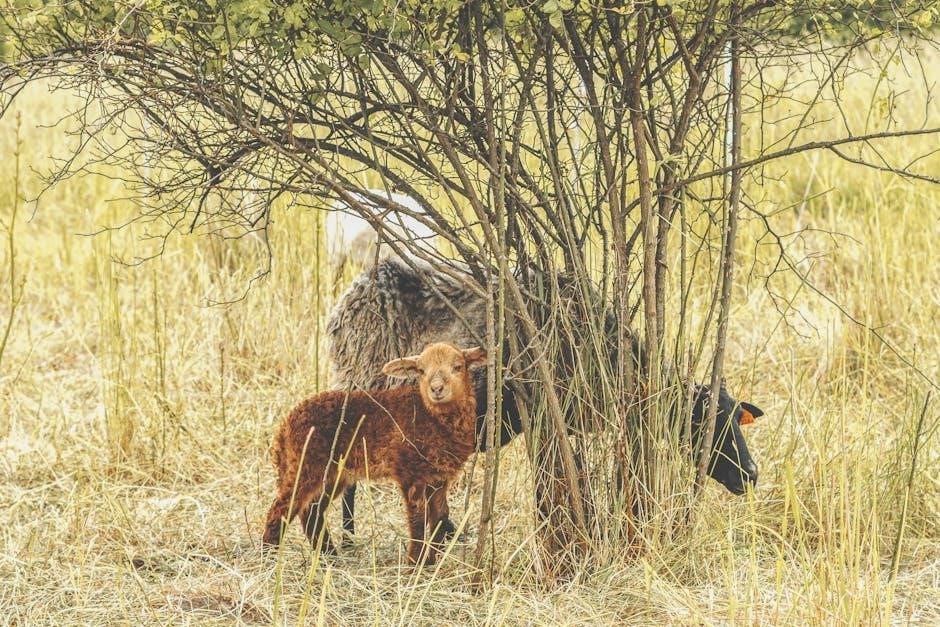
Character Analysis
Old Major is portrayed as wise and influential, inspiring the animals with his vision of freedom. The pigs, ambitious and intelligent, emerge as natural leaders, while Boxer’s loyalty and strength highlight his pivotal role. Other animals, like Mollie and Benjamin, showcase naivety and curiosity, reflecting their diverse personalities and roles in the unfolding rebellion.
Old Major’s Personality and Influence
Old Major, a wise and charismatic boar, emerges as a central figure in Chapter 1. His calm demeanor and authoritative presence command respect, making him a natural leader. Through his speech, Old Major reveals a deep understanding of the animals’ suffering and a visionary hope for their liberation. His words inspire unity and determination, leaving a lasting impact on the animals. Despite his advancing age, Old Major’s passion and conviction ignite a spark of rebellion, solidifying his influence as a symbol of wisdom and leadership.
The Pigs’ Ambition and Intelligence
The pigs in Chapter 1 demonstrate remarkable ambition and intelligence, positioning themselves as natural leaders. Their ability to organize and articulate ideas sets them apart, showcasing their intellectual superiority. Characters like Snowball and Napoleon display strategic thinking, quickly taking charge after Old Major’s speech. Their ambition, however, hints at future power struggles, as they begin to assert dominance over other animals, revealing a dual nature of leadership and potential for manipulation.
The Other Animals’ Naivety and Loyalty
The other animals in Chapter 1 display a mix of naivety and unwavering loyalty. Driven by simple desires for better living conditions, they are inspired by Old Major’s vision of freedom. Their trust in the pigs’ leadership reflects their innocence and lack of suspicion. Characters like Boxer embody loyalty, working tirelessly for the farm’s prosperity without questioning authority. Their naivety, however, makes them vulnerable to manipulation, as they rely on the pigs’ guidance without fully understanding the implications of their actions.
Old Major’s death unites the animals, inspiring rebellion against Mr. Jones. His vision sparks hope, and the pigs begin to lead, setting the stage for future events.
Chapter 1 introduces Manor Farm, where Old Major delivers a powerful speech about rebellion and a vision of a utopian society without human oppression. The animals, inspired by his words, begin to unite. Mr. Jones’s neglect and drunkenness highlight the poor conditions of the farm, while the pigs emerge as leaders. Old Major’s death marks the end of the chapter, leaving the animals determined to act and paving the way for future events.
Implications for the Rest of the Story
Old Major’s speech and death lay the foundation for the animals’ rebellion, inspiring unity and hope. The pigs’ leadership role is established, foreshadowing their rise to power. Mr. Jones’s negligence highlights the need for change, while the animals’ determination sets the stage for future events. The chapter introduces themes of oppression, rebellion, and leadership, which will drive the plot and character dynamics throughout the novel, ultimately shaping the fate of Animal Farm and its inhabitants.
Setting the Stage for Future Events
Chapter 1 establishes the foundation for the unfolding narrative, introducing key elements that will shape the story. Old Major’s vision and death create a sense of urgency, inspiring the animals to seek change. The pigs’ leadership role is established, hinting at future power struggles. The barn meeting unites the animals, showcasing their collective strength and determination. Mr. Jones’s neglect symbolizes the oppressive conditions that will drive the animals to rebellion, setting the stage for the transformative events that will unfold on Animal Farm.
